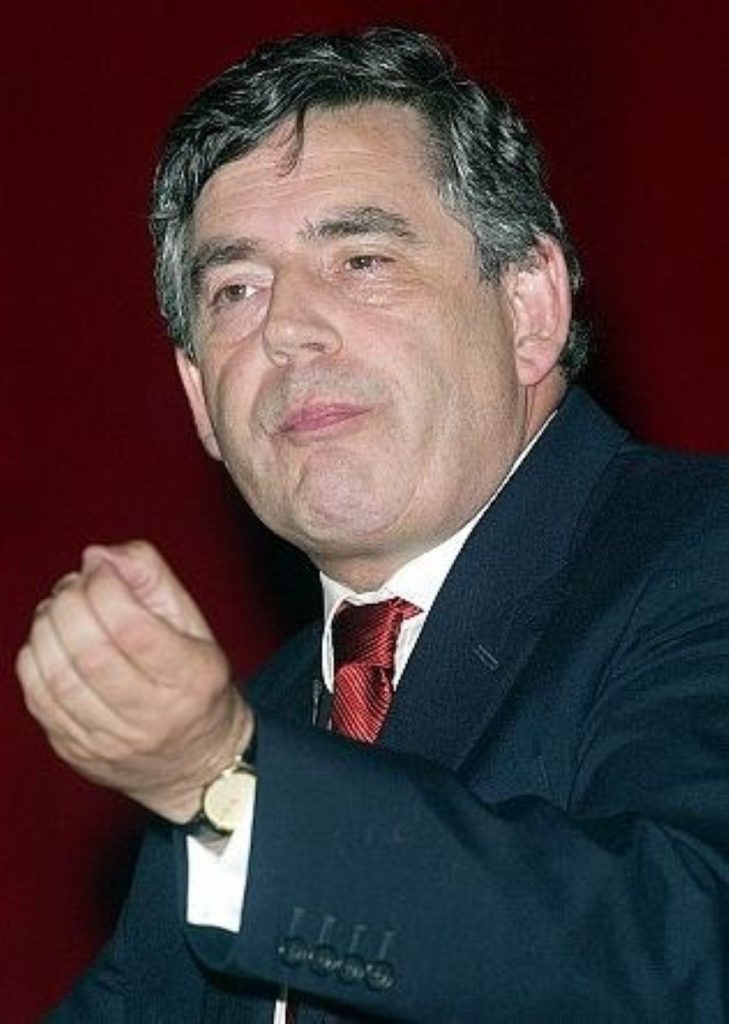Brown goes green in pre-Budget report
Gordon Brown has delivered his tenth pre-Budget report as chancellor, introducing a raft of green measures and increased investment in education and skills.
He praised the strength of the UK economy, saying that this year’s growth of 2.75 per cent was better than expected and next year’s was likely to be even better.
And he said this was the “strongest foundation from which to address the great global challenges ahead” – namely climate change and globalisation.
Mr Brown, who is expected to succeed Tony Blair as prime minister by next summer, set out his green credentials by announcing a doubling of air passenger duty from February, from £5 to £10 on short-haul flights.


The money raised from doubling airline taxes would be invested in public transport and the environment, he said, and also announced new discounts for clean transport fuels.
In addition, he said all new homes built would be carbon neutral by 2016, and would not be charged stamp duty for a limited time. He promised to extend the warm front initiative to install better insulation and free central heating for low-income households.
Another major challenge was improving the UK’s skills base, as laid out in Lord Leitch’s report yesterday, and Mr Brown pledged to increase the number of apprenticeships to 500,000 by 2020, and to help workers train for both basic skills and higher qualifications.
Former CBI boss Digby Jones has been appointed as a skills envoy to ensure businesses play a key part in these new programmes, he said.
Education spending will go up by £36 billion over the next five years, he announced, to pay for 12,000 new or completely refurbished schools by 2010. Direct payments to schools will also go up to £50,000 for primaries and £200,000 for secondaries.
Other initiatives include a doubling of the budget for policing the national minimum wage to £9 million, tougher penalties for film and music piracy, the creation of an independent planning commission and more stable funding for charities.
The state pension will rise by 3.6 per cent from next April and child benefit will also be extended to pregnant women from their 29th week, from 2009.
Mr Brown also announced a £600 million boost for troops in Afghanistan and Iraq and £84 million for intelligence and counter-terrorism work, taking this budget to £2 billion.
The chancellor said much of this extra spending would be paid for by efficiency savings within government, including real term reductions of five per cent in the budgets of the Department for Work and Pensions (DWP) among others, and asset sales.
He claimed his policies enabled a stable economy and continued public spending, by contrast to the Conservatives, who have promised they would share the proceeds of growth between public spending and tax cuts.
“I have considered representations for a third fiscal rule which would require us to cut spending by £28 billion this year alone,” Mr Brown told MPs.
“This is a choice for Britain I reject, because it would deny us investment in education, health, infrastructures and vital priorities and leave Britain wholly ill-prepared and ill-equipped for the future.”
But shadow chancellor George Osborne hit back, saying: “What this country needed was a report that prepares our economy for a future that is more competitive, more flexible and more global than ever before. But that is not what we got today.”

